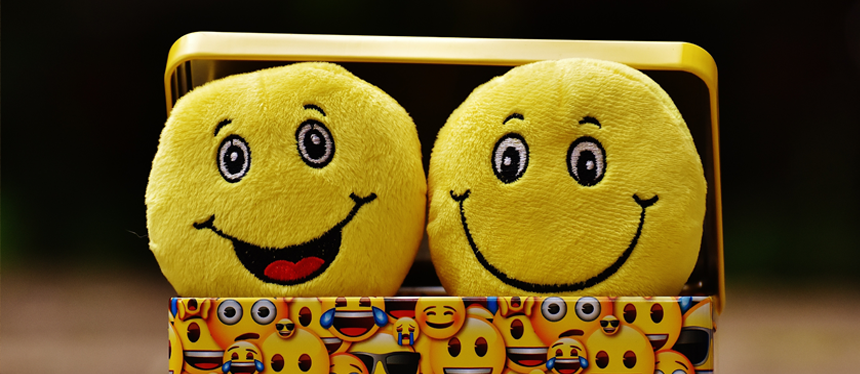social-emotional-supports
social-emotional-supports
Social & Emotional Supports
Developing strong social and emotional skills will help your child as they work through challenges they encounter on a daily basis. These resources assist you in supporting your child’s SEL education, learning strategies for dealing with anxiety and stress, and preparing for post-pandemic life.Resources
Nurturing an Emotionally Intelligent Family
Build a strong foundation of trust and respect in your family and support your child’s well-being socially and emotionally with these resources.
Online Resources
Choose Love At Home - Learn the story of Jesse Lewis and his heroic efforts. A nonprofit organization with a mission to create safer schools and homes through a no-cost, lifespan SEL platform that not only teaches students the life skills that are essential to happiness and success, but also fosters a school culture that reduces violence from the inside out.
Emotional Smarts - Great! Schools - Articles, games, cue cards, videos, interviews, an emotional toolbox and more. Developed for families by the Yale Center for Emotional Intelligence.
Family Resources - Amazing Me Self-Esteem - Family activities ranging from 20 to 60 minutes that promote confidence, self-esteem, and positive body image. Ideal for children in upper elementary grades.
Make a Mindfulness Jar or Calming Timeout Timer - When things become too much for your little one, pull out this mindfulness jar to help your child relax and settle down.
ParenTeen Connect - Committee for Children - Videos, resources, and advice around topics such as independence, responsibility, and communication to promote healthy family interactions during adolescence.
Prioritize Coping and Calming Skills | AFIRM - Supporting individuals with autism to learn coping, self-management, and self-care skills is a priority during this time of uncertainty.
Social Skills Parenting Guides - Today - Videos, articles, and tips for supporting your child’s social skills development, from pre-K through high school and into young adulthood.
LRC-South Resources
Click here to search our library collection!Social Emotional Learning (SEL)
Your child’s teacher likely incorporates SEL, or social and emotional learning, into lessons on a regular basis. Learn more about what your child may be learning and how you can support SEL education.
Online Resources
Aperture Education - Family Resources - Parents, caregivers, and families can use these free resources and lessons for children ranging from infancy to high school to promote strong social-emotional learning at home.
20 Stress-Busters for Young Children - 20 practical tips for your early childhood aged children.
At-Home Tools to Help Kids Manage Their Emotions - National Geographic - Reviews the research behind SEL skills and provides families with concrete, practical strategies to support their child's social and emotional learning at home.
Resources for Social and Emotional Learning | Common Sense Media - Learn more about character strengths like empathy, find actionable activities and edtech tools for the classroom, and discover ways to involve families in SEL learning.
SEL for Parents - CASEL - An 8 minute introductory video for families that explains what social & emotional learning (SEL) is and how they can reinforce these skills at home. Includes perspectives from administrators, educators, and parents! Also available in Spanish.
SEL Resources | Social-Emotional Learning? - Free activities and guidance for school and home from the Committee for Children.
Sesame Street in Communities - Home - Hundreds of bilingual multimedia tools to help kids and families enrich and expand their knowledge during the early years of birth through six, a critical window for brain development. Our resources engage kids and adults in everyday moments and daily routines—from teaching early math and literacy concepts, to encouraging families to eat nutritious foods, to serious topics such as divorce and food insecurity.
Social Skills Parenting Guides - NBC Today - Videos and guides to help parents cultivate social and emotional skills in their children through all ages of development, from preschool to young adults.
LRC-South Resources
Click here to search our library collection!Mental Health and Well-Being
A collection of resources to equip families with strategies to deal with anxiety or stress and to promote overall mental well-being.
Online Resources
How to Tell if Your Child Shows Symptoms of Depression - An article explaining the symptoms to pay attention to, causes and how to help.
Mindful Warriors: Meditation for Teenagers - Roots of Action - an overview of the benefits of mindfulness and resources to implement meditation strategies with your family.
Relaxation Exercises - Center for Early Childhood Mental Health Consultation - a short series of relaxation exercises designed for families to reduce their feelings of stress. Also available in Spanish.
LRC-South Resources
Click here to search our library collection!Trauma-Informed Care
Resources to equip you with trauma-informed strategies to care for your child in the wake of a stressful event.
Online Resources
About Child Trauma - The National Child Traumatic Stress Network - Provides an overview of how children experience trauma, symptoms of child traumatic stress, and both risk and protective factors for children.
Building Your Resilience - American Psychological Association - Presents practical steps people can take to adapt well when confronted with traumatic events and other significant stresses.
Coping with Trauma, Stress and Violence - NAEYC - Articles and other resources on helping young children cope with trauma, stress, and violence.
Families and Trauma - The National Child Traumatic Stress Network - All families experience trauma differently. Learn more about how trauma impacts families and find resources to help your family navigate through traumatic stress responses together.
Helping Children and Adolescents Cope with Disasters and Other Traumatic Events: What Parents, Rescue Workers, and the Community Can Do - NIH - An overview of what trauma is, common responses to trauma among children, what to do if you or someone you know is in crisis, and how to help in the first days and weeks after a traumatic event. Includes specific tips for parents.
Helping Your Child Heal After Trauma - KidsHealth for Parents - Explains how trauma affects kids, how therapy can help kids heal, how to find therapy for your child, and how to give your child the extra support they need.
Traumatic Experiences - Sesame Workshop - With their warmth, humor, and friendly personalities, colorful characters like Elmo, Grover, and Abby Cadabby make difficult topics much easier for parents and kids to talk about. Explore Sesame Workshop’s resource collections on topics such as parental addiction, foster care, family homelessness, grief and more. Topic collections include resources such as videos, articles, family activities, and printables.
Responding to Disasters and Crises
Learn how to respond to natural disasters and other crises as a family.
Caring for Children in a Disaster - CDC - A collection of resources on caring for your children during a disaster, including sections on helping children cope; children with special healthcare needs; before, during, and after an emergency; and an emergency kit checklist.
Disaster Distress Helpline - SAMHSA - Provides 24/7, 365-day-a-year crisis counseling and support to people experiencing emotional distress related to natural or human-caused disasters. Includes links to disaster-specific resources as well, including tornadoes and severe storms, hurricanes and tropical storms, floods, and incidents of mass violence.
Disasters - NCTSN - Natural disasters, such as hurricanes, tornadoes, and floods, as well as extreme weather events can lead to many adversities for children and families. NCTSN provides collections of disaster-specific resources so that families know what to do before, during, and after to support their children.
Discussing Difficult Situations with Your Children - National PTA - Tips for counteracting fear and giving reassurance by providing opportunities for children to express how they feel and channel their feelings into positive actions.
Going Back to School After a Tragedy - Child Mind Institute - Children find comfort in the familiar, and going back to school and any after-school activities helps build healthy, resilient children. Here are some tips for helping kids who are worried about going back to school.
Helping Children Cope with Frightening News - Child Mind Institute - What parents can do to aid scared kids in processing grief and fear in a healthy way. Available in Spanish.
Talking to Children about Violence: Tips for Parents and Teachers - NASP - Tips on how to help children feel safe by establishing a sense of normalcy and security and talking with them about their fears. Available in Spanish, Korean, Vietnamese, French, Amharic, Chinese, Portuguese, Somali, Arabic, and Kurdish.
What to Say to Kids When the News Is Scary - NPR - Points to helpful discussion questions and activities that families can promote to help children process potentially traumatic news.
